- About Us
- Columns
- Letters
- Cartoons
- The Udder Limits
- Archives
- Ezy Reading Archive
- 2024 Cud Archives
- 2023 Cud Archives
- 2022 Cud Archives
- 2021 Cud Archives
- 2020 Cud Archives
- 2015-2019
- 2010-2014
- 2004-2009
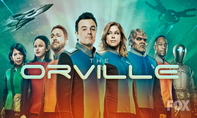 |
In Defense of The Orville |
In September 2017, The Orville launched on FOX. For old-school Star Trek fans, this live-action sci-fi series from Seth MacFarlane is the show to watch—the best of its kind since Star Trek: The Next Generation ended its run in 1994.
I have clear memories of watching reruns of the original series in the mid-1970s. I remember being wowed by Apollo’s giant hand grasping the USS Enterprise in “Who Mourns for Adonais?” and how cute those furballs were in “The Trouble with Tribbles.” By the early 1980s, I understood the underlying themes and moral lessons that the show delivered under the guise of space opera. I remember Edith Keeler’s necessary death in Harlan Ellison’s time-traveling episode “The City of the Edge of Forever” and watching a blood-fevered Spock try to kill Kirk in Theodore Sturgeon’s “Amok Time.” I learned of the gravity of the Nazi references in “Patterns of Force,” and in “A Private Little War” I understood that the Klingons and the Federation arming the tribes was an allegory for the Vietnam War.
Those deeper layers of storytelling were what set Star Trek apart from the more familiar pulp sci-fi: It had things to say about important issues, and that’s why it was such a cultural phenomenon. Now, with modern Star Trek incarnations seeming to forget what the original truly was, along comes The Orville, a show that pays homage to Star Trek while making its own way.
At least, that’s what I think, and so do overwhelming numbers of fans. But the critics certainly disagree. In one of the most astounding gaps I’ve ever seen on Rotten Tomatoes, critic reviews average just 19% to the audience’s 93%. That’s a jaw-dropping 74-point difference. How can there be that big a gulf?
I’m not entirely sure, but I bet my guesses will be at least 74% right.
Part I:
CLASSIC STAR TREK
Gene Roddenberry pitched Star Trek as “Wagon Train to the stars”—exploration on a galactic scale. He sold the concept, and Star Trek was a great success. When the network planned to cancel it after two seasons, a massive fan letter-writing campaign brought it back—unofficially a million pieces of mail. This was no small feat in the 1960s, when you couldn’t just click on an emailed link to add your name to an online petition. The third season has long been cited as weaker than the first two, with fans and critics noting often weak scripts from the silly season premiere, “Spock’s Brain,” to the possibly anti-feminist finale, “Turnabout Intruder.”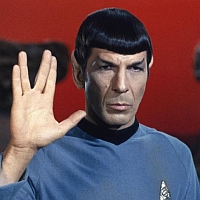
But the third season wasn’t a complete disaster. This is the season that gave us the Mission: Impossible-type story “The Enterprise Incident,” where Kirk and Spock pull off the greatest train robbery of them all.
“Let That Be Your Last Battlefield” featured two aliens jet black on one side and mime white on the other—right down the middles of their faces. Bele and Lokai were black and white on opposite sides, so Bele’s people considered Lokai’s substandard life forms. The allegory of the pointless hatred of racism was very clear.
In “For the World is Hollow, and I Have Touched the Sky” an off-course generation ship threatens to destroy another world; the passengers have long forgotten that they’re on a ship, and worship a powerful computer that rules them and punishes those who stray from its edicts. Themes: Destroy the computer and live your own lives, and blind faith has many downfalls.
And “Requiem for Methuselah” has always been one of my favorites. It addresses the potential problems of immortality, and the ethical questions of creating artificial life.
There were some rough episodes in season three. But for the most part, the show continued to go beyond pulp sci-fi and feature stories with meaning. Star Trek frequently did morality plays, taking topics of social interest at the time and disguising them amidst phasers, warp drives, and transporters. We loved the pointy-eared Vulcan but didn’t necessarily realize that he was a metaphor for the peace and logic that we really needed in our chaotic world. The Klingons were a great allegory for the Soviets.
After Star Trek was canceled, it returned as a surprisingly good animated series for two seasons. Most of the original cast voiced their characters in the half-hour episodes, and the scripts were far more insightful than was typical for Saturday-morning fare. This was a cartoon that challenged viewers to think.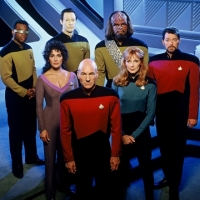
Star Trek found continued popularity through reruns and at conventions. At one point, Paramount invested a lot of money into a new show to be called Star Trek: Phase II, allegedly to launch their new national television network (in a time when there were just three—ABC, CBS, and NBC). The project was shelved, but after Star Wars exploded onto the big screen in 1977, Paramount was desperate to cash in on people’s excitement for sci-fi. The result was Star Trek: The Motion Picture in 1979, followed by five more feature films over the next 12 years
Along the way, Star Trek: The Next Generation was born. Like its predecessor, within a shell of space opera and alien interaction it hid serious stories with underlying themes that played on real-world issues. TNG lasted seven seasons, during which time Star Trek: Deep Space Nine and Star Trek: Voyager began their own seven-season runs. The prequel series Star Trek: Enterprise came along in 2001 and, although it lasted only four seasons, did a decent job sticking with serious scripts and honoring the Star Trek canon.
Part II:
RUINING STAR TREK
Fast-forward to 2017, and the new series Star Trek: Discovery. I haven’t seen much of it, because only the pilot was broadcast and was pushed out by a football game, so my DVR only got the first half hour. Subsequent episodes air only on the subscription-based CBS All Access streaming service. I had been eager to see it, because Sonequa Martin-Green was cast as the series lead; I’d loved her in The Walking Dead, and this fantastic actress seemed to be an excellent choice to lead a new Star Trek series.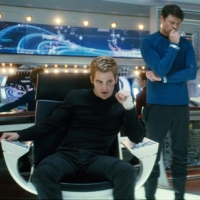
What I saw was not good. The actors were fine. The special effects were great. Everything was cool and glitzy. But it seemed to classic Star Trek what the Battlestar Galactica reboot had been: It just never felt like its predecessor, and ignored whatever magic made its predecessor great. To be fair, I did only see that half hour—but to be fairer, if this new show were so wonderful, CBS should have made it available without viewers having to pay extra for it. And based on what I had seen, it wasn’t worth paying for.
This wasn’t the first time Star Trek had disappointed me. The first came with the dreadful J.J. Abrams 2009 reboot. I saw it with a neutral stance: I went to the theater and watched it for what it was, and it was a grand space adventure. I laughed, and I marveled, and when I walked out of the theater I proclaimed that it was the most fun I’d ever had watching a movie that I hated. If there had never been a Star Trek and that movie had come along, it might have been a fun sci-fi romp. But there had been a Star Trek before it, and this movie was ONLY a fun sci-fi romp, devoid of what had made classic Star Trek so special.
On the surface, it seems like that shouldn’t have happened, but somehow the filmmakers found a way. It was a redo of Kirk and Spock back before the five-year mission. In the movie, a time-traveling Romulan destroys Vulcan, all of history is now changed, and the rebellious Kirk, a Starfleet Academy cadet, first attempts mutiny but later, after saving the day, is promoted all the way to captain and given command of the Enterprise. Aside from the script being one illogical convenient plot device after another that ignored canon and rewrote continuity, how could it not feel likeStar Trek?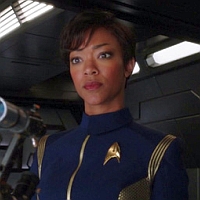
Simple: No one involved in that movie knew a damn thing about Star Trek, or if they did they didn’t care. They just wanted to redo it their way, with the pretentious and arrogant implication that classic Trek was somehow wrong. They thought that Star Trek was only about space battles and special effects. They ignored the reason that they had a Star Trek to ruin at all: because of the forty-plus years of fan support which came from Star Trek being what it was. Roddenberry’s vision had worked in the 1960s and again in the 1980s. Even subsequent series, for all of their perceived faults, were still Star Trek.
The new films erased the entire timeline, wiping out everything that had ever happened in Star Trek, and it did so without reason. It was all unnecessary, because they didn’t have to redo Kirk and Spock. With ample Trek lore and canon, they could easily have fast-forwarded beyond the time of TNG and created a new ship and crew. They could have done the same movie and destroyed Vulcan and had a rebellious ensign promoted to captain. They could have even made him James T. Kirk’s descendant. And they could have injected something of what made Trek special while they were at it. Sure, alternate timeline and all that jazz, but… just no need.
Star Trek was always about moving forward. But the Abrams crowd had no original ideas, so instead they ignored everything that mattered about the show and willingly destroyed it.
But, hey, the film and its sequels made a ton of money, right? I guess that’s all that ultimately matters to the studio.
Part III:
THE ORVILLE
Seth MacFarlane loves Star Trek. He’s had fun with it on Family Guy, including an episode where Stewie Griffin kidnaps the entire cast of The Next Generation. So when I heard that he was doing a live-action show in the spirit and genre of Star Trek, I was ecstatic.
The critics were not. It looks like they got to see the first three episodes before airing, and they lambasted it. As of this writing, with the critics’ average rating at just 19% on Rotten Tomatoes, the overall consensus reads “An odd jumble of campiness and sincerity, homage and satire, The Orville never quite achieves liftoff.”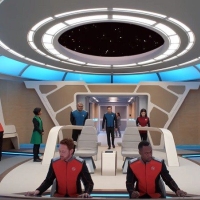
I could not disagree more. Neither could the fans, given that their reviews average 93%. This might well be the biggest disparity between critics’ and audience’s scores. Now compare them to Discovery on RT:
The Orville: Critics 19% (42 reviews); Audience 93% (7,074 reviews)
Star Trek: Discovery: Critics 82% (59 reviews); Audience 56% (6,570 reviews)
Audience reviewers love The Orville, but are indifferent about Discovery. The critics are the opposite. But while critics rarely love anything MacFarlane does—too many see him as just about offensive sex jokes and toilet humor—the score gaps aren’t ever as lopsided as they are for The Orville. Critics and audiences both liked Ted but not Ted 2; both hated A Million Ways to Die in the West. The gaps on those are not that dramatic—just four to seven points. So what’s with the incredible 74-point gap for The Orville? Based on the rants I’ve read, there are a few reasons.
First, The Orville wasn’t what they expected it to be. It wasn’t funny enough. It was too funny. There were offensive jokes. The show doesn’t know what it wants to be. Whatever their specific complaints, their reviews are often not based on the show they saw but against what they wanted it to be. That’s not reviewing. That’s whining.
Second, too many of them declared it a failed attempt to spoof, parody, or satirize Star Trek. They often compare it to the film Galaxy Quest, citing that as an example of a well-done spoof. They don’t know what “spoof” means. Spaceballs was a spoof. The Orville is not. Just because it reminds you of Star Trek but has humor doesn’t make it a spoof. A spoof mocks. A parody humorously imitates something serious. A satire ridicules or denounces. The Orville does none of these and doesn’t try to do any of them. That’s not reviewing. That’s not knowing how to use a dictionary before labeling something.
Third, and probably the biggest factor: How dare MacFarlane rip off Star Trek! They see it as a show where he just changed the names of everything and tried to put one over on us. Some of them act is if they’ve uncovered a secret conspiracy that they’ve brilliantly exposed. Nice try, MacFarlane—you almost got away with it! Instead of the United Federation of Planets, it’s the Planetary Union. Instead of warp drive, it’s a quantum drive. And there are aliens and robots and space battles! That’s not reviewing. That’s just not having the basic understanding of the difference between “something stolen” and “homage.”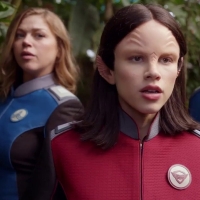
Roddenberry made no secret that he based much of his original Star Trek on the movie Forbidden Planet. Star Trek was hardly the first to have a crew in a spaceship traveling the galaxy and having adventures. Do The Orville’s critics think that it’s theft to form an organized group of planets, a plot device allowing faster-than-light travel, aliens, robots, and space battles? If so, they’d better be prepared to reject a lot of sci-fi—including plenty that came before Star Trek.
In a sense, it’s the Abrams movie and the new Discovery series that ripped off Star Trek. Armed with the legal right to call it “Star Trek” and to use all of the franchise particulars, they tossed aside its canon, the fans who made it a phenomenon, and the underlying themes that elevated it beyond pulp sci-fi and special effects. Most importantly, they left out the key things that have always made Star Trek what it was: its heart and soul, its spirit and courage, and its duty to air our biggest social challenges while masquerading as space opera.
The Orville has plenty of heart. It is the spiritual successor to Star Trek, and what it shame it is that today’s Star Trek cannot make that claim. And instead of undoing an entire franchise’s canon and history, this show is building a new one, led by a man who is excited to be able to do something in the vein of the shows he loved. With that kind of passion, he’s the best kind of person to create this show and lead it through the army of angry critics.
Part IV:
RARELY DO CRITICS “BOLDLY GO”
I’ve read some critic reviews of the first three episodes of The Orville that give me reason to suspect that they didn’t actually watch the episodes before delivering their verdicts. This would be sad but unsurprising, and would beg the question: Do these people actually want to conduct fair reviews or just grind axes and satisfy their egos?
Why would any critic be so blind as to not understand what theft is? Why would any critic hate everything MacFarlane does just because he finds the man’s humor offensive? Why would any critic not watch something and then review it anyway?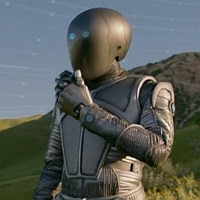
The answer is: Because critics are people, and people often suck. And give a mean person a keyboard, and he can REALLY suck—out loud, to the masses. In The Orville’s case, this show was not what they thought it would be or wanted it to be, or a rip-off even though it wasn’t, so they’ve overwhelmingly tried to destroy it in the reviews.
Superman was the first super-powered hero. Does everyone whine and complain because other comic books emulated the idea? When a new superhero appears in the comics, does anyone lambaste the creator for ripping off Superman?
Did anyone think that the 1979 TV series Buck Rogers in the 25th Century was a Star Trek rip-off? Buck was with the Earth Defense Directorate. They traveled the galaxy using stargates. There were aliens and robots and space battles. Sound familiar?
What about Star Wars? There was a Republic and an Empire, and they used hyperdrive, and there are aliens and robots and space battles.
I think there’s a perfect storm with The Orville: The belief that the shows ripped off Star Trek coupled with this anti-MacFarlane rage. Once combined, the floodgates open to those critics’ personal politics. One reviewer called the end of the third episode, “About a Girl,” the most tone-deaf thing she’d seen. In the episode, two aliens have hatched an egg and the baby is female, but their species is all male. They disagree on forced gender reassignment, so they visit their home world where the authorities must decide. They order the baby to be reassigned.
It was not a happy ending, and this critic was clearly incensed that Seth MacFarlane would force a baby to become male—as if the baby were real and Seth personally changed its gender. But any reasonable person watching that episode would see that the point of that story was that it was TERRIBLE that the child was converted. Like classic Star Trek, this was a morality play mirroring our real-life challenges. Real people are sometimes assigned the wrong genders, prevented from living as the genders they identify with, or killed for behaving as the wrong gender. Again, did this reviewer actually watch the episode?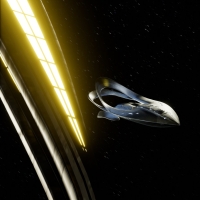
But screw the critics. The fans love it. So do Trek actors Jonathan Frakes and Robert Duncan McNeil, who have directed episodes. So does Actress Penny Johnson Jerald, who co-stars as Dr. Claire Finn. And so does Brannon Braga, former writer and producer on three Trek series and two movies, who is an executive producer. MacFarlane has also attracted some big names who certainly don’t need to do TV, such as Liam Neeson, Charlize Theron, and director Jon Favreau. I suspect that season two will bring more Trek alumni and big names into the fold.
Fans of classic Star Trek should consider themselves lucky that The Orville exists. Here we have a show in the best tradition of Star Trek, while the modern incarnations of Star Trek are a weak reflection of what they should have been. We have great characters, a fantastic cast, top-notch scripts, a 75-piece orchestra with original scores for the episodes, true heart and soul, and a creator who understands why all of that is important.
And the show does all of that with a good dose of humor that isn’t always offensive. But I concede that many people, including many of MacFarlane’s critics, are always looking for ways to feel offended.
A long time contributor to The Cud, David M. Fitzpatrick is a writer based in Maine, USA. His many short stories have appeared in print magazines and anthologies around the world. He writes for a newspaper, writes fiction, edits anthologies, and teaches creative writing. Visit him at www.fitz42.net/writer to learn more.
